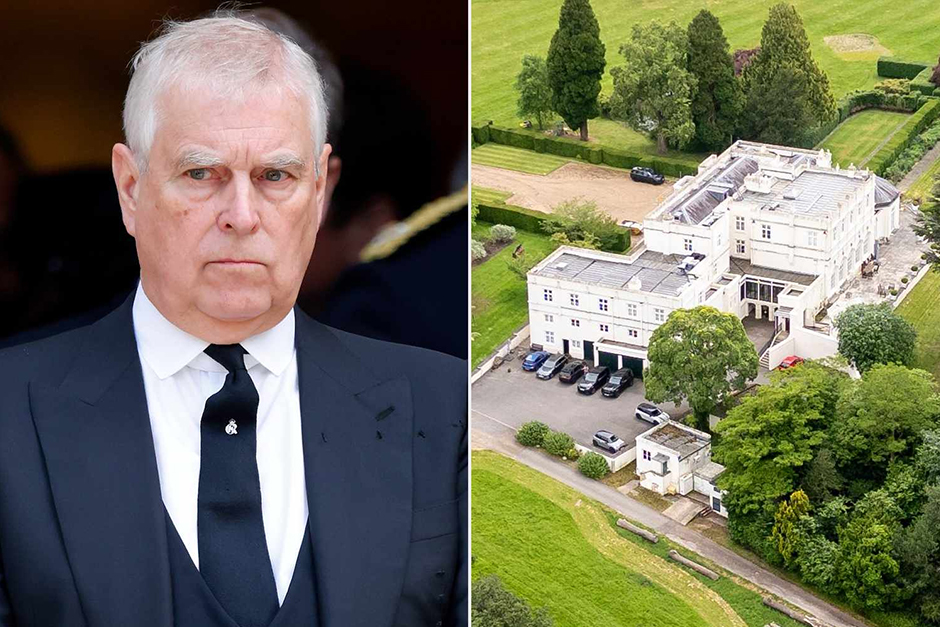The whispers have been relentless, the royal rumor mill churning with tales of downsizing and relocation. Yet, for Prince Andrew, the sprawling grounds of Royal Lodge remain his undeniable address. Despite widespread reports suggesting an imminent move to a smaller, less costly abode, it appears the Duke of York is digging in his heels, affirming his tenancy and, in doing so, creating a fascinating standoff within the Windsor dynamic. This isn’t just about moving furniture; it’s a deeper narrative concerning royal finances, family allegiances, and the evolving face of the monarchy.
The King’s Vision and Royal Real Estate
King Charles III’s reign has, from its very outset, been characterized by a palpable desire for a more streamlined, cost-effective monarchy. The narrative of fewer working royals and a more efficient estate management is not mere conjecture; it’s a visible strategy. In this context, the continued residence of Prince Andrew, who is no longer a working royal, in a 30-room mansion with significant upkeep costs, presents a curious anomaly. The pressure to consolidate, to ensure royal properties are occupied by those actively serving the Crown, is immense. It’s a move designed to project an image of fiscal responsibility and modernity, especially at a time when public scrutiny of royal expenses is sharper than ever.
However, Royal Lodge isn’t just any property. It was the cherished home of the Queen Mother for decades, imbued with significant historical and sentimental value. For Andrew, it’s not merely a house but a connection to his late mother and a symbol of his past position. The reported suggestion that he move to Frogmore Cottage, a considerably smaller residence recently vacated by the Duke and Duchess of Sussex, seems, in the eyes of many, a logical next step in the King’s grand plan. But logic, as we often find, doesn’t always trump deeply entrenched personal conviction.
Andrew’s Unyielding Stance: Lease, Investment, and Legacy
Prince Andrew’s position isn’t simply one of stubborn refusal; it’s reportedly rooted in a significant leasehold agreement. He holds a 99-year lease on Royal Lodge, granted in 2003, for which he is said to have paid a substantial sum. Furthermore, he reportedly invested millions in renovations and repairs over the years, contributing significantly to its maintenance and modernization. This financial outlay creates a powerful argument against any forced relocation. It’s a question of property rights, even within the confines of a royal estate. “Andrew sees Royal Lodge not just as a house, but as a legacy,” noted one royal commentator, speaking anonymously on the delicate situation. “He’s invested heavily, emotionally and financially, and he believes he’s fully entitled to remain.”
Beyond the legalities, there’s an unspoken aspect of royal hierarchy and familial dynamics at play. While the King holds the ultimate authority, the delicate balance of family relationships and the perception of fair treatment inevitably factor into such decisions. Dislodging a sibling from a long-term residence, particularly one with such personal history, is never straightforward, even for a monarch. It raises questions about precedent, fairness, and the extent to which the King is willing to push for his vision, potentially at the cost of internal family friction.
The Optics and the Road Ahead
The saga of Prince Andrew and Royal Lodge is more than just a real estate negotiation; it’s a microcosm of the challenges facing the modern monarchy. The optics of a non-working royal occupying such a grand and costly residence continue to generate debate. For a monarchy striving for relevance and public approval in the 21st century, every decision regarding finances and property is scrutinized. The King’s desire for a leaner, more accessible institution clashes with the deeply personal attachments and historical rights of individual family members. How this particular standoff resolves itself will likely set a precedent for future royal property discussions and further define the boundaries of the new monarchy.
For now, it seems the gates of Royal Lodge remain firmly closed around Prince Andrew, signaling that the process of streamlining the royal estate is perhaps far more complex and protracted than initially imagined. The conversation isn’t over; it has merely entered a new, more entrenched phase.




